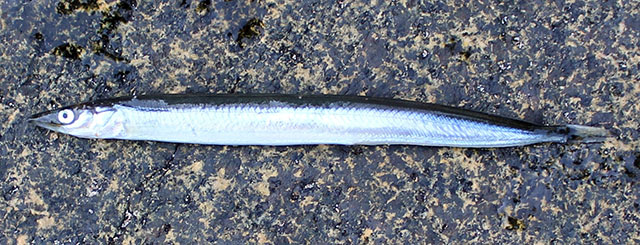| Ammodytidae (Sand lances) |
| 23.5 cm TL (male/unsexed) |
|
demersal; brackish; marine; depth range 0 - 73 m |
| Northwest Atlantic: southern Delaware north to Labrador. |
|
Dorsal spines (total): 0-0; Dorsal soft rays (total): 52-61; Anal spines: 0-0; Anal soft rays: 26-33; Vertebrae: 62-70. Number of lateral plicae 106-126, with a mean of 117.4. Best separated from A. dubius by the number of plicae singly or in combination with the number of vertebrae. |
| Found in shallow coastal waters as well as in protected bays and estuaries (Ref. 10198). Occurs in large schools and burrows in the sand at times to a depth of several inches. Feeds primarily on copepods (Ref. 27549). |
|
Not Evaluated (N.E.) Ref. (130435)
|
| harmless |
Source and more info: www.fishbase.org. For personal, classroom, and other internal use only. Not for publication.

